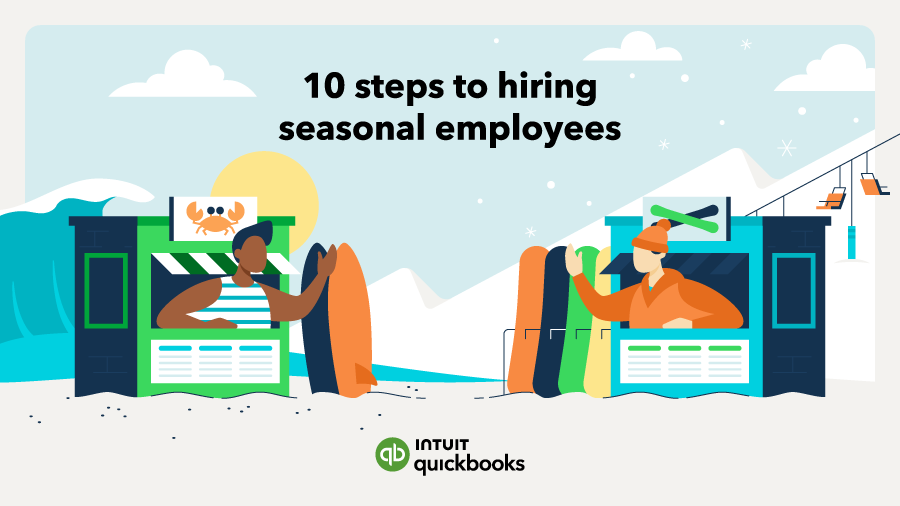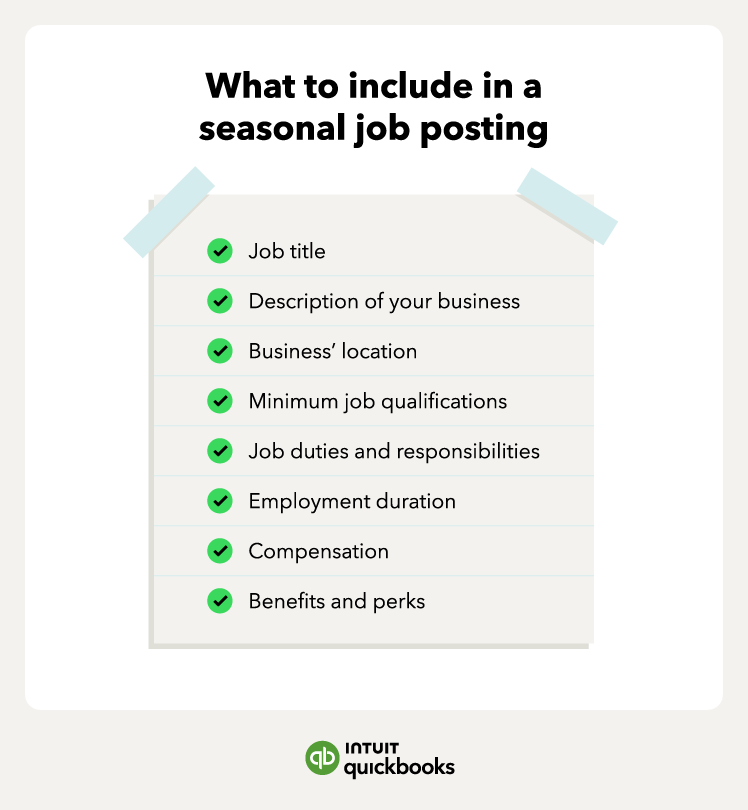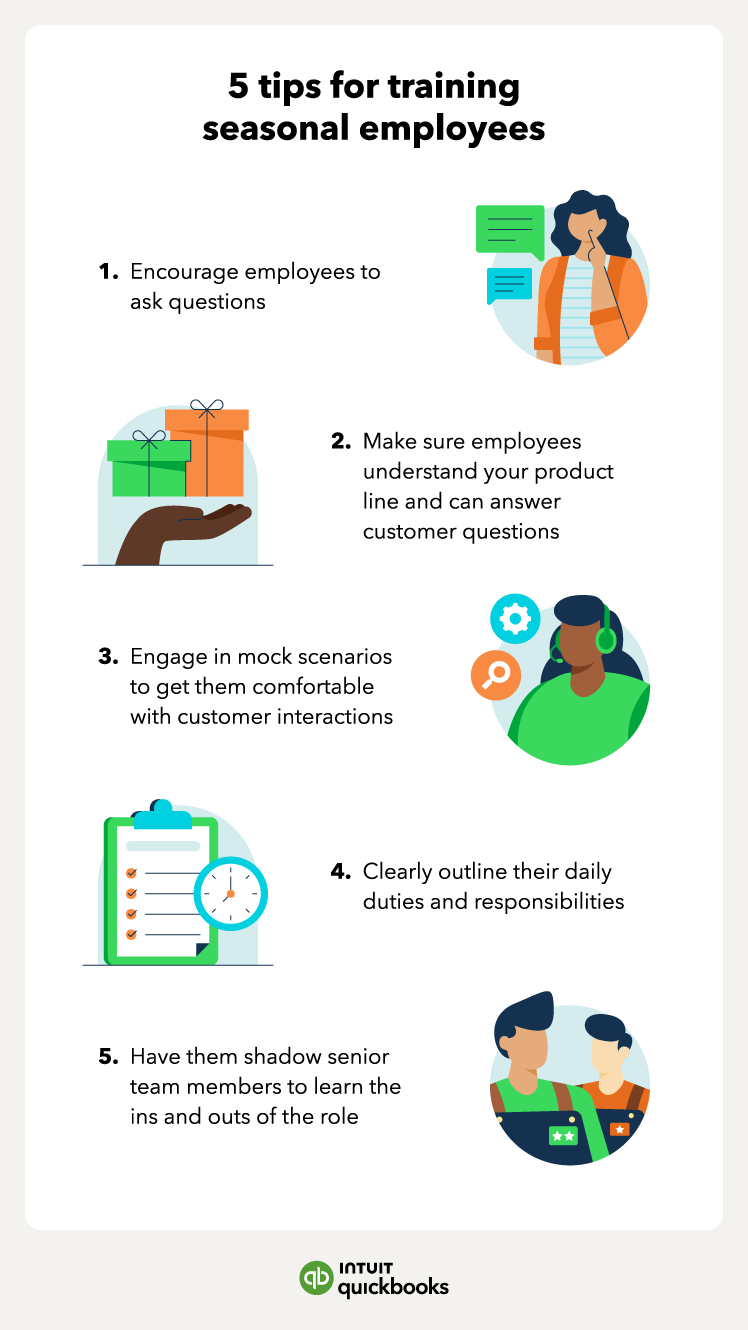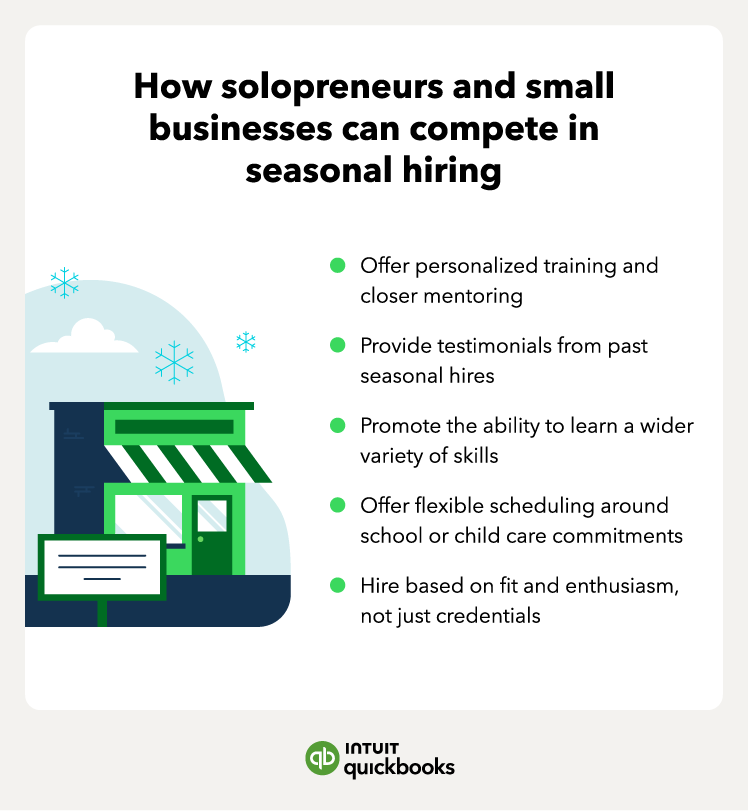The holidays are an important time of year for small businesses, as many rely heavily on holiday sales to generate significant cash flow. The busy time also spurs a lot of seasonal workers hiring. Knowing how to hire seasonal employees is critical, including getting the interview process right.
Seasonal employees help support businesses during busy periods, like between Thanksgiving and New Year’s,, summer in a popular beach town, or winter at a ski resort. Employees are “seasonal” if the duration of their employment is limited, and if the job usually starts and ends at roughly the same time each calendar year.
Below, we’ll uncover the necessary steps solopreneurs and small businesses should take when hiring seasonal employees to make smart and strategic hiring decisions:
- Start planning and recruiting early
- Assess your seasonal employee needs
- Create a seasonal work schedule
- Define the roles and responsibilities
- Put together a job ad for seasonal workers
- Look for candidates with relevant experience
- Streamline your seasonal hiring process
- Stay compliant with labor laws
- Create an onboarding and training process
- Keep in touch with great seasonal help


















